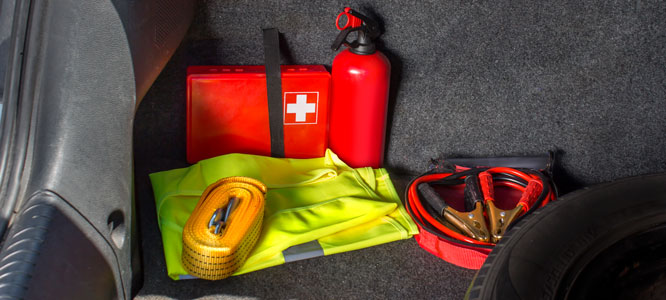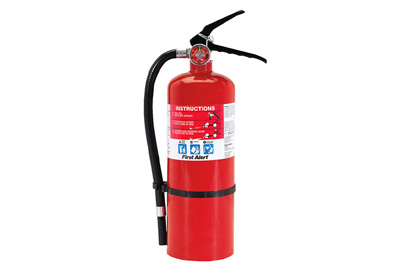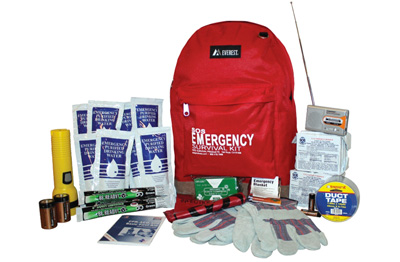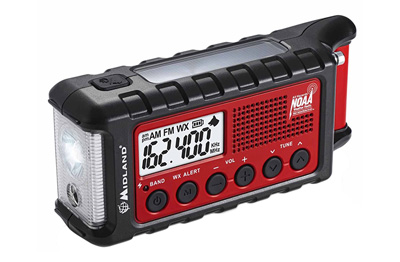Holiday Safety Tips
Friday, December 21, 2018
It's that time of year again, and that means cozy evenings by the fire, family visits and plenty of eggnog. But for every moment of holiday cheer, it's important to recognize the potential for a disaster. Emergencies are preventable to prepare to enjoy another healthy new year with just a few simple safety basics.
Warmth, Ambiance & Delicious Holiday Meals
The three basics of any good holiday gathering, and with just a little bit of extra planning and preparation, you can ensure everyone is safe at home this holiday season.
- Get a professional to ensure your heating system is serviced properly; replace filters at scheduled times to minimize dust and other flammable particles.
- Install a smoke detector and test it at least twice a year.
- A combination smoke/carbon monoxide detector such as this one provides long-term protection against fires and CO leaks.
- Carbon monoxide is created by appliances like dryers, water heaters, furnaces and stoves. CO is an odorless gas that cannot be detected through smell or sight. Oftentimes, CO poisoning is also referred to as "the silent killer", because people tend to ignore their initial symptoms before losing consciousness.
- Don't use space heaters in unoccupied rooms or at night while you are sleeping.
- Keep electric blankets uncovered and flat to avoid trapping excess heat.
- Get your chimney cleaned professionally to avoid creosote buildup.
- Never use accelerants to start a fireplace
- Keep flammable objects a safe distance from the fireplace opening
- Keep candles in cleared areas away from drapes, decor or tablecloths, and burn candles only in appropriate heat- and fire-resistant containers.
- Never leave food cooking unattended in the kitchen.
- Set timers to help you remember when to remove foods from the oven or stove.
- Keep crock pots on even surfaces and away from items that can melt or ignite.
- Don't use outdated appliances with faulty chords
In the Company of Kids & Pets
There's nothing better than a home filled with children's laughter and furry friends. Take extra precaution to keep all members of your family safe.

- Keep breakable ornaments at the top of the tree.
- Avoid tinsel, which may be too tempting to ingest.
- Hide wires from grabby hands and curious mouths.
- Keep alcohol and inappropriate foods where they can't be reached.
- Pass up the Peace Lilies, Caladium (Heart of Jesus), Pothos and Philodendron.
- Although Poinsettias tend to be known as poisonous plants among pet owners, the toxicity they produce is actually relatively mild in comparison to these other plants.
- Alert visitors that you have pets and/or children to avoid an accidental jailbreak,
- Keep kids & pets comfortable with hugs and praise during fireworks.
- Treats, cuddles and hugs will not reinforce your dog's fear. The principle of operant conditioning is based on finding desired behaviors and rewarding them. Fear is an emotion, not a behavior.
- Teach children about the dangers of playing with fireworks early on.
- Don't feed pets holiday foods, particularly grapes and raisins, onions, garlic, chocolate and dairy.
- Never give pets or kids alcohol, even in small amounts, as these can cause cardiovascular disturbances.
Outdoor Fun & Travel
There's nothing like waking up to a batch of fresh snow. If you find yourself struck by that winter Wanderlust, keep this things in mind before heading out.
- Service your car.
- Maintain proper antifreeze levels
- Keep tire pressure at the recommended PSI
- Consider snow or all-weather tires
- Always wear appropriate clothing.
- Water- and wind-resistant shoes, coats and gloves are essential when traveling, hiking or skiing.
- Keeping an affordable yet durable poncho such as this one in your car or bag can provide a valuable layer or protection in emergencies.
- A one-time use emergency blanket like this one easily fits in coat pockets, fanny packs or glove boxes.
- Prepare a car emergency kit.
- Portable cell phone charger
- Extra blankets
- Booster cables
- Emergency water
- Flashlight
- First aid
- Use this kit to help you get started.
- Treat icy driveways and sidewalks.
- Remember to research your options carefully to choose eco-friendly and non-toxic products.
- Sand helps to add traction to ice and snow.

- Avoid traveling altogether if poor conditions are predicted.
- Remember that weather conditions can change very rapidly at high altitudes.
- If you become stranded:
- Make yourself visible.
- Stay with your car unless you are within 100 yards of help.
- Run your car until it's warm, then turn it off.
- Ensure your exhaust is well ventilated to avoid CO poisoning.
- Stay awake.
- Don't stop moving to avoid unconsciousness or death from exposure.
- Check out these additional tips from the U.S. Forest Service on how to deal with getting lost.
- Don't explore frozen streams, rivers or lakes.
- If you fall into ice:
- Resist the impulse to hyperventilate.
- Don't panic.
- Orient yourself toward the direction from which you came, this is where the ice was strong enough to support your weight.
- Staying as horizontal as possible, pull yourself up while simultaneously kicking your legs hard.
- To distribute your weight more evenly, roll away from the broken ice; do not stand up immediately.
- Remove wet clothes as soon as possible and get help.












